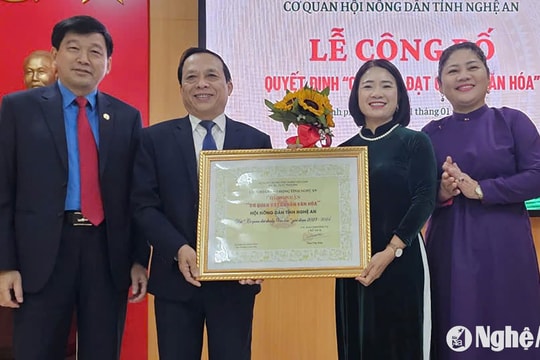Promoting support resources for farmers to develop the economy
(Baonghean) - The biggest difficulty for farmers when entering integration is the lack of capital, technology, and restructuring of crops and livestock to create high production value.
Therefore, Conclusion No. 61 of the Party Central Committee Secretariat (10th tenure) on the Project "Enhancing the role and responsibility of the Vietnam Farmers' Union in agricultural development, new rural construction and building the Vietnamese peasant class in the period 2010 - 2020" (Conclusion 61) is the key to opening up favorable conditions for farmers.
The key to implementing Conclusion 61 is that the Farmers Support Fund at all levels operates effectively and farmers are able to attend technical training courses, which both opens up another channel to access capital and equips them with scientific and technical knowledge.
Implemented since 2012, the Farmers' Association of Chau Hanh Commune, Quy Chau has allocated 300 million VND from this fund for farmers to borrow to buy buffaloes and cows to develop production.
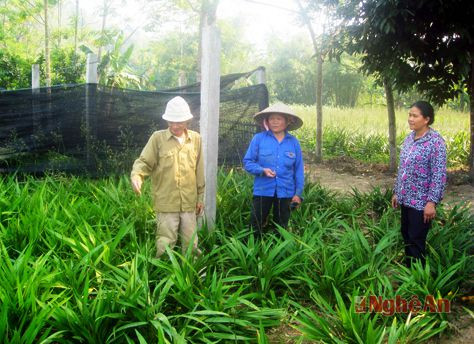 |
| Model of growing incense roots by Quy Chau farmers. Photo by Dang Cuong |
From the loan, Mr. Luong Van Quang, Minh Tien village, Chau Hanh commune, was able to borrow a breeding cow. After 3 years of raising the cows, the family now has 3 cows. Mr. Quang shared: “This is a great asset. The family will try to take good care of them and develop the herd to increase income.”
In the period of 2013 - 2015, Quy Chau Farmers' Association organized propaganda and mobilized all levels of associations to contribute to the fund building, reaching over 40 million VND. From the capital mobilized in the area and the provincial trust of 600 million VND, up to now, the Association has regulated the construction of highly effective economic models.
In Do Luong district, through the implementation of Conclusion 61, many farmers have had access to science and technology, loans to develop the economy, and enrich themselves legitimately in their homeland. Among them is the VAC model of farmer Nguyen Van Han in hamlet 10, Tan Son commune, Do Luong, which brings in hundreds of millions of dong in income each year.
Mr. Han shared: “The most important thing is that through the Farmers' Association, I was able to participate in training courses on farming techniques. Therefore, when building the farm, in addition to the financial resources from my family and the association, I also have another important source of capital, which is knowledge of science and technology, contributing to fast and effective production.”
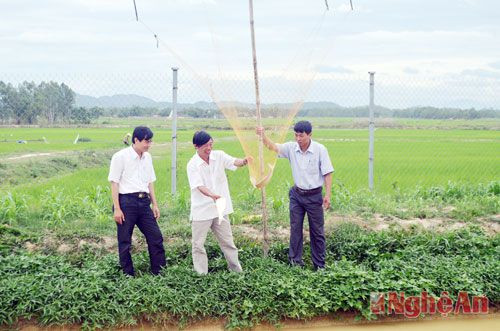 |
| Mr. Nguyen Van Han, Hamlet 10, Tan Son, Do Luong (standing in the middle) is discussing the effectiveness of fish farming on the farm. |
In Do Luong, on average, each year about 1,000 farmer members receive short-term vocational training through classes organized by the Association in collaboration with vocational schools. In addition, the Support Fund has over 2.2 billion VND in revolving capital for farmers to borrow.
In general, in the whole province, the implementation of Conclusion 61 has received great attention and direction from the Provincial Party Committee and the Provincial People's Committee from the beginning. In 2014, the Provincial Party Committee reviewed 5 years of implementing Conclusion 61 in Nghe An province. The Provincial People's Committee and the Provincial Farmers' Association have a coordination program for the period 2011-2020.
Since 2012, the Provincial People's Committee has also provided the Farmers Support Fund with 15 billion VND; in addition, the Central Farmers' Association has entrusted the Government with more than 13 billion VND to the Nghe An Farmers' Support Fund. Thereby, over 1,500 farming households have had access to capital to build models and develop the economy. In addition, thousands of farmers have also received vocational training.
Comrade Tran Van Huong, Permanent Vice Chairman of the Provincial Farmers' Association, assessed the effectiveness of Conclusion 61: "Many members have benefited from State investment sources, the most important of which is support for production development, especially in disadvantaged areas. Many economic models have developed with high efficiency. The number of good production and business households has increased by 1.5 times, contributing to improving people's lives and reducing poverty."
Nhat Le

.jpg)
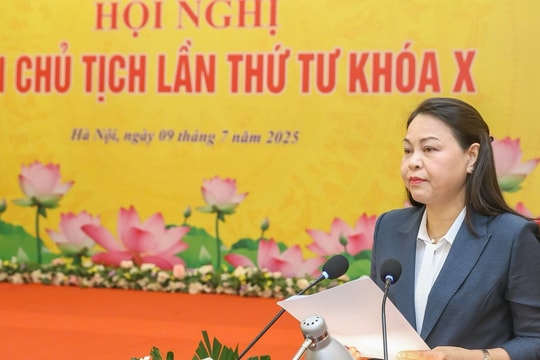
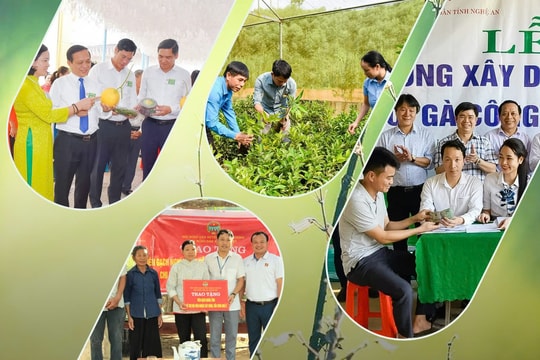
.jpg)
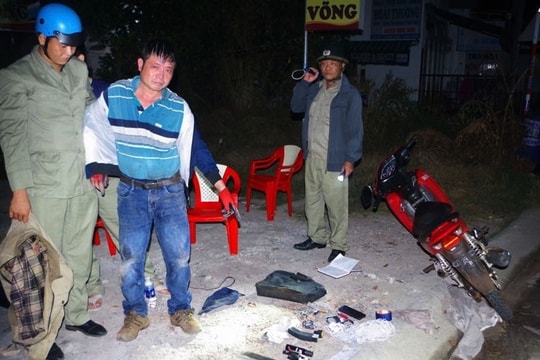
.jpg)
